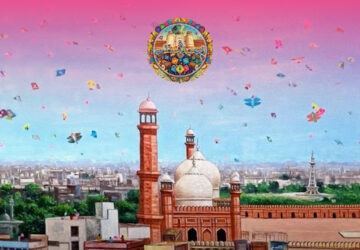No one can forget the 27th of December, 2007. For many, it is the day Pakistan was brutally robbed of one of its most iconic, albeit controversial, political leaders – Benazir Bhutto. For my family, it was one of the darkest days in our lives, for different reasons.
Benazir Bhutto, the first woman ever to lead a nation that consisted of Muslims in a majority, heading the Pakistan Peoples Party (PPP), was assassinated in broad daylight at one of her political rallies on 27th December 2007.
Prior to this, Benazir Bhutto had survived an attack after she returned from her exile to Karachi. Two explosions occurred while she was on her way to a political rally from Jinnah International Airport on 18th October 2007.
Consequently, Benazir Bhutto and her husband, Asif Ali Zardari, requested the President of Pakistan at the time, Pervez Musharraf, to provide Bhutto with increased security. Musharraf allegedly denied all requests, stating that the assassination attempts were her own fault due to the “unnecessary risks” she took.
The horrifying incident, captured by many on camera, took place at a rather crowded Liaquat National Bagh, where shots were first fired, followed by a suicide bombing attack.
Twenty-three other people lost their lives that day. Of course, we know very little about them, and the legacy of their death, as far as the larger narrative is concerned, boils down to a number. Twenty-three.
Shakespeare, in his renowned play, ‘Julius Caesar,’ aptly states, “When beggars die, there are no comets seen; the heavens themselves blaze forth the death of princes.” Benazir Bhutto was, in her own right, royalty.
She inherited a political empire built by her father, Zulfikar Ali Bhutto. Her murder was monumental and its aftermath – absolutely brutal.
Mob mentality got the best of Pakistanis. Demonstrations were held across the nation, where brawls between police officials and civilians were reported. In places like Peshawar, the police resorted to the usage of tear gas and batons to combat protestors.
Police officials in Sindh, Benazir Bhutto’s home turf, were told to display immense vigilance. Two police officers even lost their lives after being shot during the ensuing riots in Karachi, after the assassination.
President Musharraf became a prime target for the fury of protestors and supporters. Degrading slogans against the president were chanted, displaying support for the slain Benazir Bhutto.
Consequently, Musharraf called for immediate action to be taken against all those who were aggravating the situation. Additionally, shoot-on-sight orders were issued by the Pakistan Rangers. However, the unrest carried on until the next day, where the situation worsened.
Reports claim that nearly a hundred people lost their lives in the aftermath of Benazir Bhutto’s assassination. Cars, tires, foreign outlets, trains, ATMs, and banks were destroyed.
The nation was weeping and bleeding at the same time, with pain and rage evident in each particle of the atmosphere. Amongst all this, in the early hours of 28th December 2007, my family and I became a part of the larger statistics quoted by news outlets.
To provide some context, 27th December is my parents’ wedding anniversary. My mother had prepared a wonderful meal for my father and was expecting him to arrive by 9 pm, as he usually does, so that they could spend some time together before going to bed.
However, due to the ongoing situation, my father remained stuck in traffic, and did not reach home well after the piping hot dinner had been consumed, and the eve of the anniversary had passed.
“After a very late dinner, which was supposed to be an anniversary dinner,” recalls my father, “around 1:15 am, we lay down to sleep, only to be awakened fifteen minutes later by the gatekeeper of the building.”
“I asked him what’s wrong,” my father continues. “The gatekeeper replied, ‘Saab, building main aag lag gayi hai. Neeche ajao. (Sir, the building is on fire. Please come downstairs.)’”
Our building used to have a bank situated towards the back. During the ongoing riots, amongst the many banks that were attacked, that particular bank made it to the rioters’ list as well.
A group of young men made several attempts to throw explosives at the bank and were eventually successful after being shooed off by our gatekeeper and his relatives multiple times.
“There were a couple of old women. We have about twelve flats – six on the first floor, six on the second floor,” my father remembers, putting things in context. “There were only two families. The rest were widowed or single women living alone. Everybody bundled out on the main road together, in whatever they were wearing at that point in time.”
My father, who had been fast asleep within that short window of time, does not remember hearing an explosion. However, my sister, who was six-years-old at that time, remembers this clearly.
“I heard a really loud sound that sounded a lot like an explosion,” she states, trying hard to remember. “Obviously, I was very confused. I got up and went to my parents, who were already awake at that time. They told me to grab all the essential things and go downstairs.”
“I remember how Dad was running around, trying to grab all the important things he thought we would need and Mom was doing the same. My brother was told to take our grandmother downstairs, and I followed him.”
My sister also managed to grab the wireless telephone we had during that time, which was utilized to make several important calls, including the calls my father made to his sister to inform her about what had transpired.
“I rang up my sister,” my father continues, “and informed her about what had happened, telling her I’d get back to her once I knew more.”
Upon talking to the gatekeeper and his relatives, my father managed to find out what had actually happened.
The bank, with its glass front windows and doors, had been attacked by the Pakistani version of Molotov cocktails, which had been hurled at the glass.
Eventually, the glass broke, and the rest of the cocktails were hurled inside. The bank caught fire. As mentioned before, the gatekeeper, with a couple of his relatives, had tried to scare off these men. However, the damage had been done.
My father vividly remembers watching the flames leap up, slowly encroaching upon the rest of the building, as its residents watched helplessly in the bitter cold. However, to make matters worse, the helplessness was destined to prevail, as pleas for help fell on deaf ears.
“We called the fire department in Saddar,” my father remembers angrily. “The department said that it had its hands full, and we should try to call the one in Clifton or Defense. Eventually, I got hold of one and I conveyed the message. They stated that they’d try their best, and would send a fire truck as soon as one was available.”
“I rang them up around 1:30 am or 1:40 am. I called my sister again, asking her to send the car to have my mother and the children picked up.”
“It was around 3 am when the first fire truck arrived. Only one.”
“By that time, the fire had reached the topmost flat which was vacant and had traveled on the right side, to the adjacent flat as well. It was creeping to the left, all the way to the adjacent flat on that side as well.”
“The problem was that all the shoe shops were situated towards the bottom of the building. The mezzanine floor housed their extension, where the shoes were stored – leather products.”
“The fire truck arrived, tried to extinguish the flames, ran out of stored water, and turned to leave. I asked them where they were going. They stated that they needed to get a refill from Phase 8.”
My father, horrified by the response, asked the firefighters if there was a location nearby. There wasn’t.
However, while the fire did simmer down for a while, it reignited after half an hour, especially once the leather shoes began to serve as its fuel. At that point, there was no stopping it.
After a while, the same firefighters came back and tried once more to extinguish the fire. The second attempt, too, was an exercise in futility, and they left to refill the tank again. Several attempts were made to contact the fire department to send more than one vehicle at a time. However, none were available.
After all, what was happening to our building was a mere microcosm of what was happening across the nation in the aftermath of Benazir Bhutto’s assassination.
“Around 4 am,” my father continues, “the chilliest part of the night, where we were all shivering since we had left in a hurry in our night suits, I saw that things were looking pretty bleak.”
“Around 4:30 am or 5 am, another fire truck arrived and tried to do some damage control. However, the fire had engulfed the shoes, and it was not easy to control. What they had succeeded in doing was putting out the fire towards the extension that faced the back.”
“At 7 am, two fire trucks arrived together with a senior official. The official called for a water tanker at the location, so that the constant back and forth could finally cease. After that, things progressed rapidly. A succession of fire trucks started arriving. However, those shoes were a major headache and the fire refused to be put out. It would rekindle after a gap of ten to fifteen minutes.”
“All we could do was watch in helpless impotence, as one flat after another caught fire.”
It was only around 4 pm in the evening, according to my father, that the fire was finally controlled and extinguished fully.
“It was controlled at our flat. We were sitting outside on the road, watching as my mother’s bedroom caught fire. The children’s bedroom, which was the centermost room, caught fire as well. Before our room could be engulfed as well, the fire was finally controlled.”
“We went upstairs to the flat after things settled down and opened the door. We were ankle-deep in water, if not more. My mother’s room was a pile of ashes. Nothing was left behind.”
“The fans had contorted grotesquely. She was only left with the clothes she had been wearing that night. Everything else had been destroyed. And my mother – she loved her sarees.”
“The centermost room was also burned. My room was not burned, but everything had been blackened by the smoke.”
“Fortunately, I had managed to retrieve all important documents in the middle of the night with a torch, while the fire had engulfed the other side of the building.”
“After about an hour, we decided to leave. The wooden door had burned down. I locked the metal gate. I remember thinking that even if anyone wanted to break in at that point, they wouldn’t have managed to get anything substantial.”
My father further remembers how my mother had begun to cry defeatedly. He had managed to pacify her by saying that those who know what needs to be done are doing their job. Moreover, he asked her to pray that our flat faces minimal damage, if any at all.
Eventually, my parents headed to my aunt’s house to rest. However, at 1 am, they received a call from one of the neighbors, whose house had remained untouched. They were informed that the fire had broken out again. The fire department had already been called.
Residual embers had been reignited by the breeze, leading to yet another fire hazard. This went on for the next twenty-four to thirty-six hours.
In all of this, my parents also tried to arrange for our accommodation. At this point, all of us could not live in my aunt’s apartment. As far as our own house was concerned, we were, in every sense of the word, homeless.
My aunt’s husband arranged for us to move into a vacant neighboring house that had been trashed by its previous owners. We shifted in, with whatever we had at that point in time.
My father tried his best to draw attention to the matter. He penned impassioned letters to editors of newspapers and magazines. He wrote enraged Op-Eds. He tried to call anyone who would listen. However, aid or even acknowledgment of any kind seemed to be a pipedream.
After all, Benazir Bhutto was gone. The nation was mourning the loss of a leader. Only families like ours, who had lost houses, businesses, and loved ones, mourned our cursed fates.
As news of the incident spread, however, my father’s friends reached out and offered to help. We were given beds, mattresses, blankets, food – anything his friends could do in their capacity to make our lives easier. Many even pitched in financially to help us rebuild our home.
“They helped me out in every possible way,” my father remembers gratefully, “and it was a relief to get some help from somewhere.”
We stayed at our makeshift home for around six months while the apartments in our building underwent renovation. Our apartment had to be renovated from scratch.
As a middle-class family, with two working parents, the idea of dipping into finances we didn’t even have to renovate the house seemed like an impossible task. However, we will always be grateful to my father’s friends for stepping in and helping out.
It’s been thirteen years since Benazir Bhutto was assassinated. My otherwise stoic father can’t seem to mask the brokenness in his voice while revisiting the painful memories. My emotionally charged mother refused to talk about it altogether.
In all of this, I must admit that I had not been around to witness the incident. I have heard about it, time and again, from my family members, and while I cannot even begin to understand how they must have felt, outside in the cold, watching our house burn, I can empathize.
The most vivid memory I have of the incident, in the aftermath of Benazir Bhutto’s death, was visiting the burned site two days after the incident. I remember climbing up the darkened stairway, entering our blackened house. Everything was truly destroyed.
As I made my way into the hall, I saw my mother sitting atop a distorted piece of furniture, in what was then the lounge, staring listlessly at the wall ahead. When I called out to her, she just stared back, as if looking right through me, with tears in her eyes. That has been one of my most haunting memories to date.
I understand that when beggars die, there are no comets seen. As much as the equilibrium damages people like us, its existence seems to be a persistent reality. The homeostasis of our country is such that incidents like these are pushed to become mere numbers to be cited in reports or articles, with little to no aid offered in the aftermath.
However, behind each number, there is a story. Behind each statistic, there is a world of pain and undeniable loss.
Heavens may blaze forth at the death of princes. But, when you’re the one facing Caesar’s comet, life ceases to be a dramatized play penned to entertain.
It becomes exactly what it sounds like: you, face-to-face with the wrath of heavens blazing forth, with the night suit you’ve donned as your armor, and the bitter, cold, silent night as your only witness and companion.







